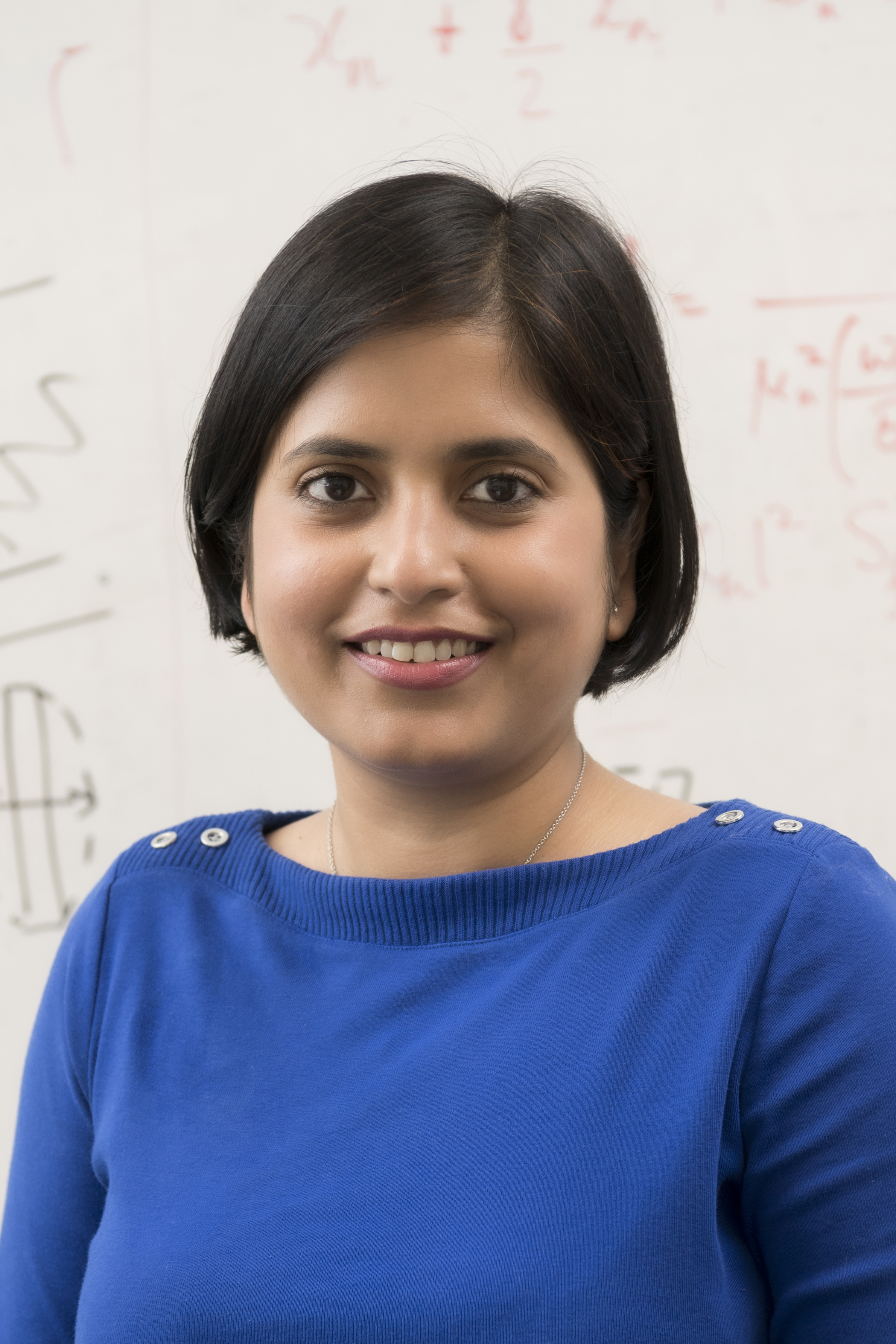Colloquia & Guest Speakers
Searching for gravitational waves and dark matter using optomechanical systems
Dr. Swati Singh, Department of Electrical and Computer Engineering, University of Delaware
Monday, September 30, 2019
3 p.m.
Goergen 101

Abstract:
When properly engineered, simple quantum systems such as harmonic oscillators or spins can be excellent detectors of feeble forces and fields. Following a general introduction to this fast growing area of research I will focus on using optomechanical systems as sensors of weak strain fields. We show that certain mechanical systems can compete with interferometric detectors and potentially surpass the gravitational strain limits set by them for certain pulsar sources within a few months of integration time. Additionally, dark matter particles coupling to standard model fields and particles would also produce a coherent strain signal in an elastic solid. We discuss the feasibility of searching for such scalar field couplings in the 10-12eV--10-8eV mass range using various optomechanical systems. Along with exploring some fundamental problems in physics, I will show that in both cases understanding and addressing issues around quantum control are essential steps towards building quantum noise limited detectors.
Bio:
Swati Singh received her B.Sc. in Physics at McMaster University in 2004. After obtaining her M.Sc. in Physics from the University of British Columbia in 2007 working on ultracold atomic physics experiments, she transitioned to theoretical physics for her Ph.D. Under the guidance of Pierre Meystre at the University of Arizona, she wrote her dissertation on observing quantum effects in macroscopic oscillators. After receiving her Ph.D. in 2012, she worked on theoretical problems in the area of optomechanics and solid-state qubits as an ITAMP postdoctoral fellow at Harvard University (2012-15). After a brief appointment at Williams College (2016-18), Dr. Singh joined the Electrical and Computer Engineering faculty at the University of Delaware in Sept 2018, where she continues to work on a broad range of problems in theoretical quantum optics. Her current research interests include investigating novel optomechanical detectors, understanding noise in solid-state qubits, and quantum thermodynamics.
Location: Goergen 101
Refreshments will be served.
